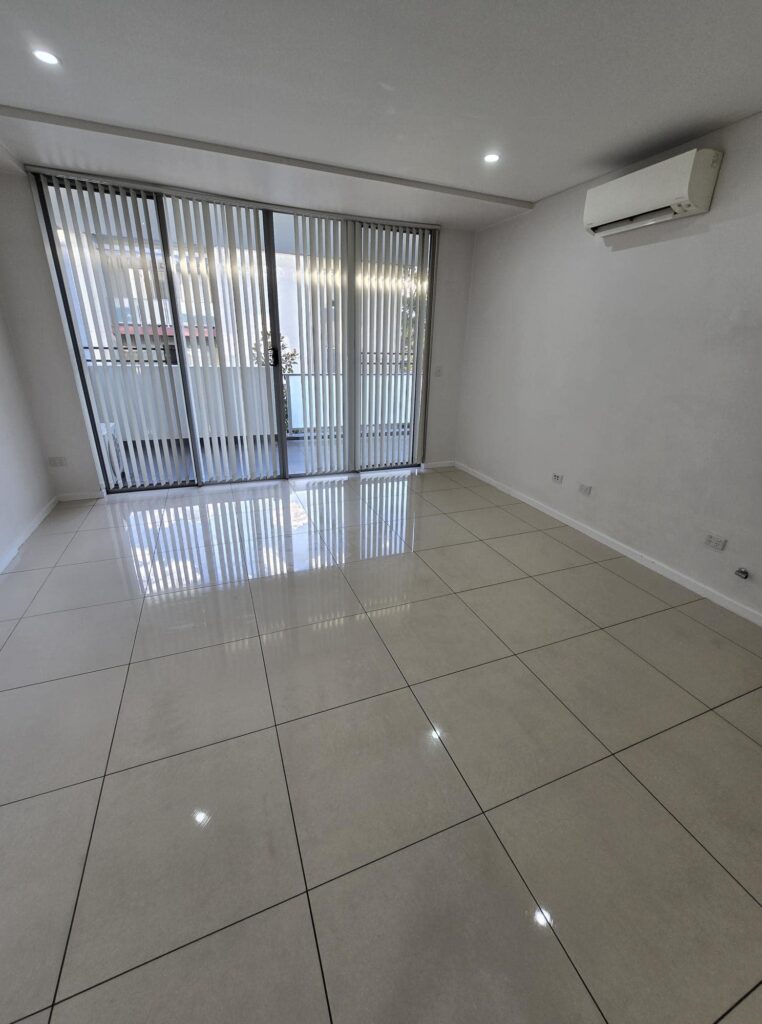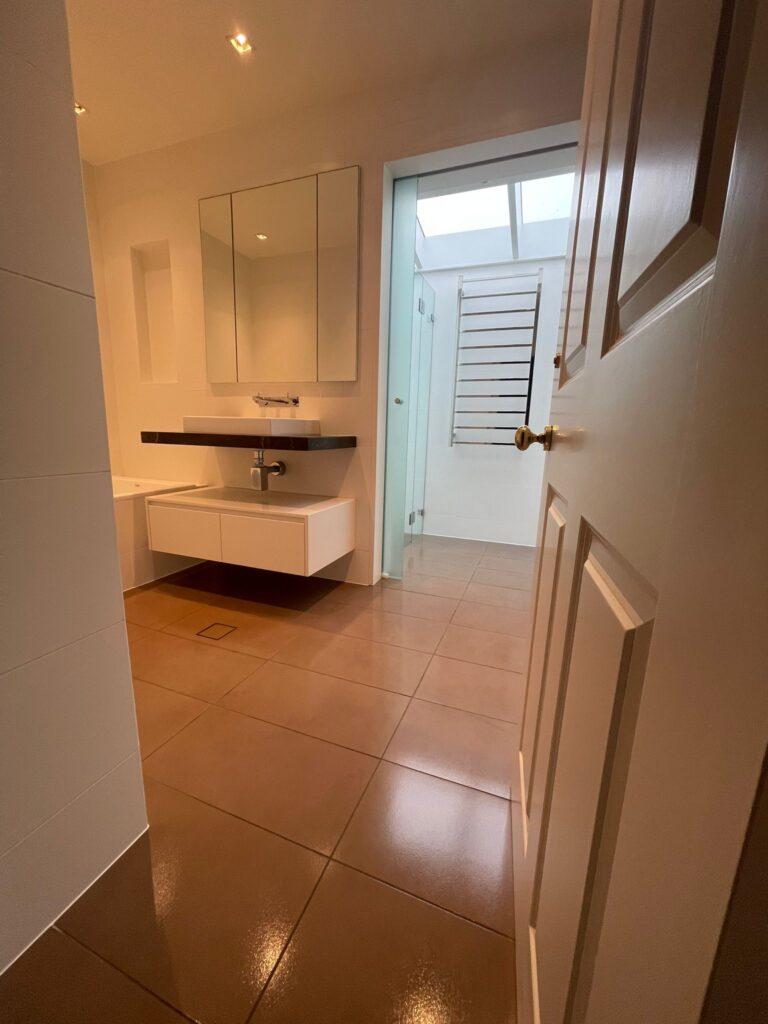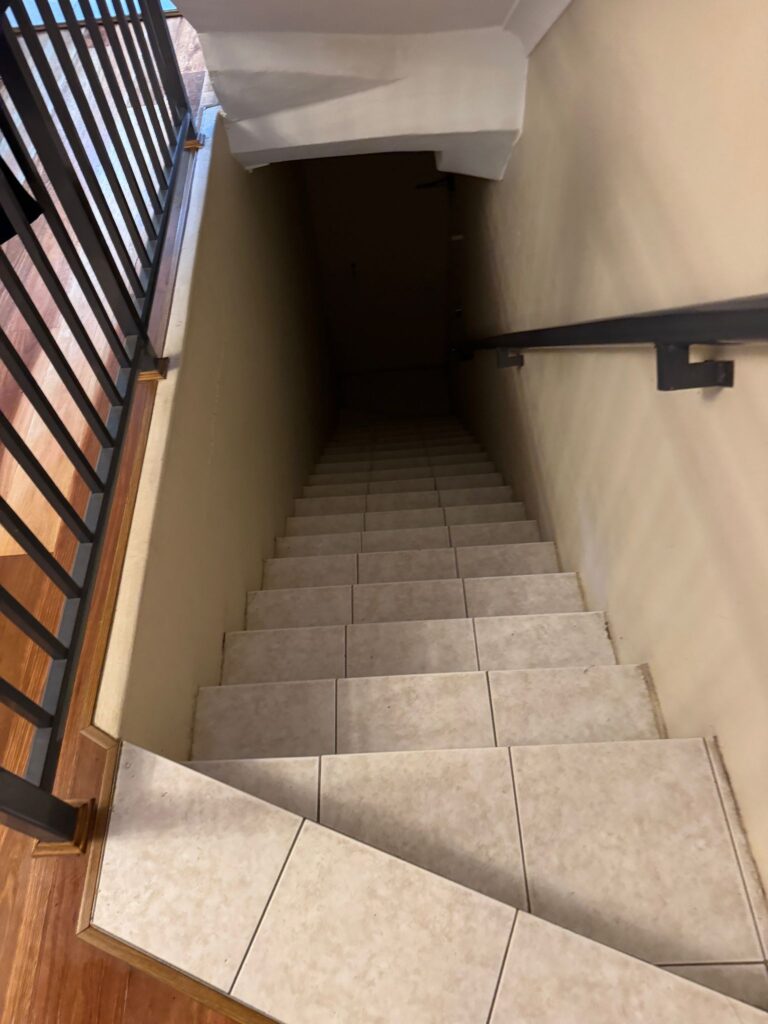Moving out of a rental property in Sydney comes with a long checklist of cleaning tasks, and one area that many tenants underestimate is the tiles and grout cleaning. While sparkling countertops and freshly vacuumed carpets may grab attention, property managers and real estate agents often focus on the condition of the bathroom and kitchen tiles.
The truth is, even the most polished tiles can look dirty if the grout lines in between are stained, mouldy, or discoloured. That’s why choosing the right grout cleaner is so important.
Dirty grout not only spoils the overall look of your home but can also raise hygiene concerns, leading to bond deductions during inspection. Whether you prefer a DIY cleaner for grout, a natural tile grout cleaner, or a professional cleaning services in Sydney for grout and tile cleaner, knowing which option is best for your property can make the difference between a smooth move-out and unexpected cleaning charges.
In this guide, we’ll walk you through how to select the best products and techniques, what real estate agents expect, and when it’s worth calling in professional help to guarantee your bond return.
Why Grout Needs Extra Care Before Bond Inspections
Unlike smooth tiles, grout is porous. That means it absorbs spills, dirt, soap scum, and even grease from cooking. Over time, the lines between tiles darken, creating an unclean appearance.
Real estate agents and landlords usually expect:
- Grout lines that are consistent in colour
- No visible mould or mildew in bathroom or kitchen tiles
- Freshly scrubbed tiles with grout free from sticky residue
- An overall impression of professional tile and grout cleaning
Failing to address these details could mean deductions from your security deposit.
Understanding Different Types of Grout Cleaners
Not all tile and grout cleaners are created equal. Depending on the type of grout and tile, certain products may be more effective.
1. Chemical Grout Cleaners
Chemical cleaners are specially formulated to break down stains, grease, and mould in grout.
Pros:
- Highly effective on tough stains
- Quick action, suitable for last-minute cleaning before inspections
Cons:
- It can be harsh on natural stone tiles
- Require safety precautions (gloves, ventilation)
2. Natural or DIY Grout Cleaners
If you prefer a more eco-friendly approach, natural cleaners like baking soda, vinegar, or hydrogen peroxide can be effective.
Pros:
- Non-toxic, safe for kids and pets
- Affordable and easy to find
Cons:
- Requires more effort and scrubbing
- May not remove heavy discolouration or mould
3. Steam or Heat-Based Grout Cleaning
Steam cleaners are ideal for deep cleaning tiles with grout without chemicals.
Pros:
- Kills bacteria and mould naturally
- Safe for most tile surfaces
Cons:
- Equipment cost can be high
- It can be time-consuming for large areas
Read More: How Much Does End of Lease Cleaning Cost in Sydney?
Key Features to Look for in a Grout Cleaner
When selecting the right tile grout cleaner or grout and tile cleaner, consider the following features:
- Surface Compatibility – Check if the cleaner is suitable for ceramic, porcelain, or natural stone tiles.
- Ease of Use – Some cleaners require mixing, others are ready-to-use sprays or gels.
- Safety – Look for non-toxic options if you have kids or pets at home.
- Effectiveness – Reviews and product testing can help determine if a cleaner removes tough stains without damaging grout.
- Time-Saving – For move-out cleaning, faster action products may be preferable.
How to Clean Grout on Tiles Effectively
Here’s a step-by-step guide to tiles and grout cleaning using a cleaner for grout and tile:
- Prepare the Area – Remove loose dirt and debris from the tiles. Sweep or vacuum thoroughly.
- Choose Your Cleaner – Apply the tile and grout cleaner or grout cleaner according to the product instructions.
- Apply the Cleaner – Use a sponge, brush, or cloth to cover all grout lines evenly.
- Let It Sit – Allow the cleaner to penetrate the grout. For chemical cleaners, follow recommended dwell times.
- Scrub the Grout – Use a stiff-bristle brush or grout brush for best results.
- Rinse Thoroughly – Remove all residue to prevent streaks or chemical damage.
- Dry Completely – Use a clean cloth or mop to dry tiles and grout.
- Optional Sealing – Applying a grout sealant can prevent future staining and make maintenance easier.
Factors to Consider When Choosing a Grout Cleaner
Not all cleaners for grout are suitable for every situation. Keep these factors in mind:
- Type of Tile – Ceramic and porcelain are more forgiving, while natural stone needs gentler products.
- Level of Staining – Light dirt may respond to DIY methods, while deep mould often requires professional-grade cleaning.
- Safety Concerns – Families with kids or pets should priorities eco-friendly or non-toxic cleaners.
- Timeframe – If your inspection is days away, a fast-acting tile grout cleaner is more practical.
- Budget – DIY is cheaper, but professional cleaning ensures a thorough job and protects your bond.
A Step-by-Step Approach to Cleaning Grout on Tiles
If you’re determined to handle the cleaning yourself, here’s how to clean grout on tiles effectively:
- Sweep or vacuum tiles to remove surface dirt.
- Apply your chosen cleaner for grout and tile evenly.
- Allow the solution to rest for a few minutes (check label directions).
- Scrub the grout lines with a stiff brush in circular motions.
- Rinse thoroughly with warm water to remove cleaner residue.
- Dry the area completely to prevent new mould growth.
Mistakes That Can Damage Tiles and Grout
While cleaning, tenants often make errors that worsen the situation:
- Using bleach on coloured grout, can fade or strip colour.
- Scrubbing too aggressively, leading to cracked grout lines.
- Mixing different chemicals may produce toxic fumes.
- Skipping the rinse, leaving behind sticky residue.
By avoiding these, you can maintain a fresh finish without damaging surfaces.
When It’s Smarter to Call Professionals
Even the best grout and tile cleaner won’t always fix years of buildup or heavy staining. Here’s when calling End of Lease Sydney’s tile and grout cleaning experts makes sense:
- Large tiled areas like kitchens, bathrooms, and living spaces
- Heavy mould or mildew growth in showers
- Stains that don’t respond to DIY products
- A tight timeline before the final inspection
Professional cleaning not only saves you hours of scrubbing but also ensures a bond back guarantee.



The Benefits of Professional Tile and Grout Cleaning in Sydney
Hiring specialists offers more than just convenience:
- High-grade equipment that penetrates deep into grout pores
- Safe cleaning solutions tailored to your tile type
- Consistent results across all areas of your home
- Bond assurance—helping you secure your full deposit refund
At End of Lease Sydney, we include tiles and grout cleaning as part of our comprehensive end-of-lease service.
Read More: Benefits of Hiring Professional Residential Cleaners in Sydney
Maintaining Clean Grout After a Professional Service
If you choose professional help, here’s how to keep your tiles and grout cleaner for longer:
- Wipe surfaces after showers or cooking to reduce moisture buildup
- Sweep and mop tiles weekly
- Re-seal grout lines every 12–18 months to protect against staining
- Use pH-neutral cleaners for regular maintenance
Final Thoughts
Choosing the right tile grout cleaner is more than a matter of preference—it’s essential for a successful move-out. Whether you opt for DIY products, commercial tile and grout cleaner solutions, or professional services, the goal is the same: fresh, hygienic, and inspection-ready tiles.
For tenants in Sydney who want peace of mind, hiring a professional grout and tile cleaner is the safest option. At End of Lease Sydney, our team specialises in tile cleaning and grout methods that meet real estate standards and come with a bond back guarantee.
Don’t risk losing your deposit—book your tile and grout cleaning service today and leave your rental looking spotless.
FAQs About Tile and Grout Cleaning Before Moving Out
1. What is the difference between grout cleaner and tile cleaner?
Grout cleaner penetrates porous grout lines, while tile cleaner works on the smooth tile surface.
2. Can I use natural/DIY solutions to clean grout?
Yes, baking soda, vinegar, or peroxide work for light stains, but strong stains may need a professional tile and grout cleaner.
3. Will harsh grout cleaners damage tiles?
They can. Acidic or bleach cleaners may harm coloured grout or natural stone surfaces.
4. Do I need to seal grout after cleaning?
Not required for end-of-lease, but sealing helps grout stay clean and protected.
5. How long does grout take to dry after cleaning?
DIY cleaning dries in a few hours, while deep professional cleaning may take up to 24 hours.
6. Does grout cleaning help me get my bond back?
Yes, clean grout makes tiles look fresh and helps avoid bond deductions during inspection.
7. What brush is best for grout cleaning?
Use a stiff grout brush or toothbrush. Avoid metal brushes that damage grout lines.
8. How often should grout be cleaned?
Every 2–3 months, or monthly in kitchens and bathrooms with heavy use.
9. When should I hire professional tile and grout cleaners?
For deep stains, mould, large areas, or when you want a bond-back guarantee.
10. What safety tips should I follow when using grout cleaner?
Wear gloves, ventilate well, don’t mix chemicals, and rinse thoroughly after cleaning.



